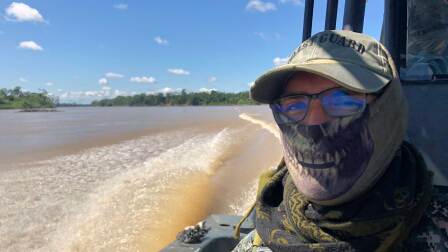Back to Show
Earth Focus
Maritime Pollution Exposed
(Earth Focus: Episode 46) Between 70-210 million gallons of waste oil are illegally dumped at sea by commercial ships each year. In fish, marine oil pollution is linked to cancers, tumors, reduced growth rates, genetic side effects, and death. It is also toxic to seabirds and marine mammals including whales, sea otters, and dolphins. The new film "Oil in Our Waters" exposes this practice. Film director Micah Fink shares his findings with "Earth Focus" and explains new ways citizens can now help stop illegal oil dumping. An "Earth Focus" special report produced in collaboration with Common Good Productions and the Pulitzer Center for Crisis Reporting.
Support Provided By
Season

Unlock with PBS Passport
26:40
Diablo Canyon ignites conversations about nuclear power in the state’s energy future.
Earth Month


26:40
Love for Joshua Tree endangers the local life—both people and ecosystems.
Earth Month


26:40
Ravens threaten Mojave Desert tortoises, and solutions call on shifts in human behavior.
Earth Month


26:40
A transformed L.A. River is envisioned by the communities that live at its edge.
Earth Month


26:40
The L.A. River is reimagined through explorations of history, hydrology, and architecture.

26:47
Everyday people are standing up against the e-commerce giants polluting the Inland Empire.

56:40
Climate change takes a toll on mental health in rural areas.

56:41
Stories of patients and doctors reveal the environmental determinants of health in South Gate, CA.

26:39
South Africa faces a stark reality as the continent’s largest greenhouse gas emitter.

26:39
In-depth profiles of four young environmentalists: Alexandria Villaseñor in California, Carl Smith in Alaska, Ayakha Melithafa in South Africa and Litokne Kabua in the Marshall Islands.

26:40
The realities of milk production are forcing dairy communities across the globe to rethink the dairy production process.












